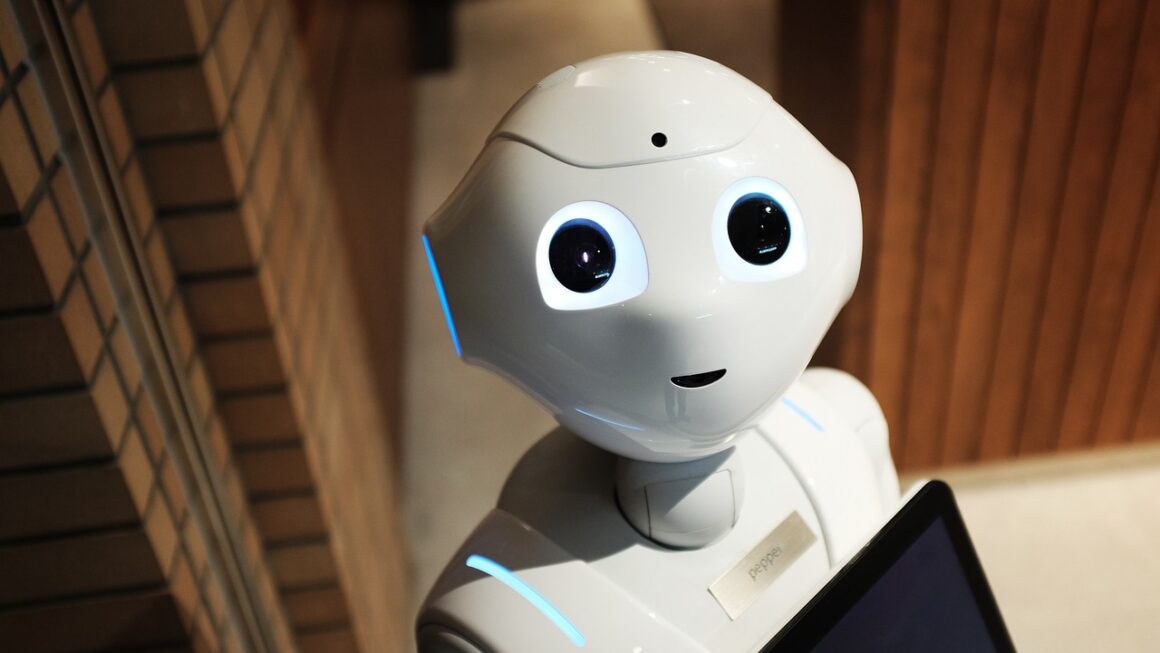The integration of Artificial Intelligence (AI) into our daily lives is no longer a futuristic fantasy; it’s a tangible reality shaping how we work, communicate, learn, and even relax. From personalized recommendations to automated tasks, AI is quietly revolutionizing the way we navigate the world. Understanding and embracing this technological shift is key to not just keeping up, but thriving in the modern AI lifestyle.
Enhancing Productivity with AI Tools
AI’s power to automate and streamline tasks is significantly impacting productivity across various sectors. By understanding how to leverage these tools, individuals and businesses can achieve more in less time.
AI-Powered Task Management
- Smart Calendars and Scheduling: Tools like Google Calendar and Microsoft Outlook use AI to learn your preferences, suggest optimal meeting times, and even automatically reschedule appointments based on your priorities. This eliminates the back-and-forth of manual scheduling and ensures you’re making the most of your time.
- AI-Driven Project Management: Platforms like Asana and Monday.com integrate AI to predict potential project roadblocks, automate task assignments, and provide data-driven insights into team performance. This allows project managers to proactively address issues and optimize workflow.
- Email Management: AI email assistants, such as those found in Gmail and other platforms, filter spam, prioritize important messages, and even suggest smart replies, saving you valuable time and mental energy.
AI for Content Creation and Research
- Automated Content Generation: AI writing tools can assist in creating various types of content, from blog posts and social media updates to marketing copy and email newsletters. While human oversight is still crucial, these tools can significantly speed up the content creation process and overcome writer’s block. (Note: Always check and edit output for accuracy and originality).
- AI-Powered Research: AI search engines and academic databases use natural language processing to quickly sift through vast amounts of information and extract relevant insights. This is particularly useful for researchers, students, and anyone who needs to quickly gather information on a specific topic.
- Example: Tools like Grammarly use AI to proofread your writing, offering suggestions for grammar, spelling, punctuation, and style, improving clarity and professionalism.
Revolutionizing Communication with AI
AI is transforming how we communicate with each other, bridging language barriers and creating more personalized and efficient interactions.
AI-Driven Translation and Interpretation
- Real-Time Translation: Services like Google Translate and Microsoft Translator use AI to provide real-time translations of spoken and written languages, breaking down communication barriers in international business, travel, and personal interactions.
- AI-Powered Chatbots: Chatbots are increasingly being used for customer service, providing instant answers to common questions and freeing up human agents to handle more complex issues. This not only improves customer satisfaction but also reduces operational costs.
Personalized Communication Experiences
- AI-Personalized Email Marketing: AI algorithms analyze customer data to personalize email marketing campaigns, delivering targeted messages that are more likely to resonate with individual recipients. This leads to higher open rates, click-through rates, and conversion rates.
- Voice Assistants: Voice assistants like Siri, Alexa, and Google Assistant use AI to understand and respond to voice commands, allowing users to control their smart devices, access information, and perform tasks hands-free. This enhances convenience and accessibility.
AI and Personalized Learning
AI is personalizing education in ways never before possible, adapting to individual learning styles and providing customized support.
Adaptive Learning Platforms
- Personalized Learning Paths: AI-powered learning platforms analyze student performance and adapt the curriculum to meet individual needs, providing personalized learning paths that maximize engagement and knowledge retention.
- Intelligent Tutoring Systems: AI tutors provide personalized feedback and support, helping students master difficult concepts and improve their overall academic performance.
- Example: Platforms like Khan Academy utilize AI to assess a student’s understanding of a concept and provide personalized practice exercises and videos to address any gaps in knowledge.
AI for Accessibility in Education
- Automated Transcription and Captioning: AI-powered transcription and captioning tools make educational materials more accessible to students with disabilities, such as those who are deaf or hard of hearing.
- AI-Powered Language Support: AI tools can translate educational materials into different languages, making them accessible to students who are learning a new language.
AI in Healthcare and Wellness
From diagnostics to personalized treatment plans, AI is revolutionizing healthcare and wellness, leading to more accurate diagnoses, improved patient outcomes, and more proactive healthcare management.
AI-Powered Diagnostics and Treatment
- Early Disease Detection: AI algorithms can analyze medical images, such as X-rays and MRIs, to detect early signs of disease, such as cancer, allowing for earlier intervention and treatment.
- Personalized Medicine: AI is being used to analyze patient data and develop personalized treatment plans that are tailored to individual needs and genetic profiles.
- Robotic Surgery: AI-powered robots are assisting surgeons in performing complex procedures with greater precision and accuracy, leading to improved patient outcomes and shorter recovery times.
AI for Wellness and Fitness
- Personalized Fitness Tracking: Fitness trackers use AI to analyze your activity data and provide personalized recommendations for exercise and nutrition.
- AI-Powered Mental Health Support: Chatbots and virtual therapists are using AI to provide mental health support, offering personalized guidance and coping strategies.
- Example: Apps like Calm and Headspace use AI to personalize meditation sessions based on your mood and preferences.
Conclusion
The AI lifestyle is rapidly evolving, offering incredible opportunities to enhance productivity, communication, learning, and healthcare. Embracing AI tools and understanding their potential benefits can significantly improve our daily lives. While it’s important to be mindful of ethical considerations and potential challenges, such as job displacement, the transformative power of AI is undeniable. By staying informed and adapting to this technological revolution, we can harness the full potential of AI to create a more efficient, personalized, and fulfilling future.




